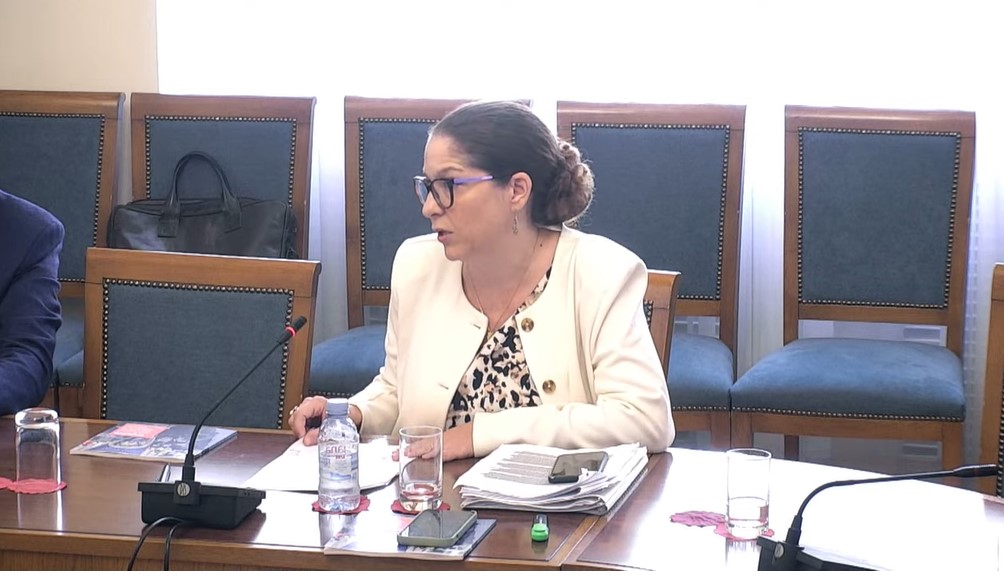The Ombudswoman, Tena Šimonović Einwalter, participated on July 10, 2024, in a roundtable discussion at the Croatian Parliament, where the association “In the Name of the Family” presented the “Report on Violations of the Right to Freedom of Religion of Men Participating in Public Rosary Prayer in 2023” (UiO Report). The event was organized by the Parliamentary Club of the Homeland Movement in cooperation with the association “In the Name of the Family.”
In her address, the Ombudswoman highlighted that the UiO Report portrays various public criticisms as attacks and violations of human rights, even though they fall under freedom of expression. She spoke from the position of the Croatian Parliament’s Commissioner for the Promotion and Protection of Human Rights and Freedoms as defined by the Constitution, laws, and international human rights instruments accepted by the Republic of Croatia.
She pointed out five key issues with the UiO Report:
First, the material uses a legally unfounded system of classifying attacks, relying on the authors’ own definitions, which are neither properly cited nor applied. For example, to constitute defamation under the Criminal Code, a false factual statement is required, not a value judgment. The report also contains other legal inaccuracies, such as referencing criminal acts allegedly violating the Anti-Discrimination Act, even though that Act contains no criminal provisions.
Second, the examples cited as attacks are mostly critical statements protected under freedom of expression. The report mentions over 50 alleged “attacks,” which in reality consist of statements, artistic actions, newspaper articles, and similar expressions. Criticism or questioning is described as an attack and wrongly classified, for example, as the criminal offense of public incitement to violence and hatred. The Ombudswoman reminded that, according to the European Court of Human Rights, the right to freedom of expression is protected even when it offends, shocks, or disturbs the state or any part of the public, as this freedom is essential to any democratic society.
Indeed, from a human rights perspective, the Ombudswoman emphasized, the Report’s misunderstanding of freedom of expression is deeply problematic, particularly the way it publicly names numerous individuals—journalists, activists, and politicians—who critically addressed the prayer gatherings, accusing them of unlawful conduct, including criminal offenses.
Third, although the UiO Report refers to “conflicts bordering on and including physical confrontations,” among the listed “attacks” on those praying, there are no documented physical assaults on them. Instead, the report cites one incident involving former MP Ivan Pernar, who was physically attacked, but who has since been lawfully convicted for attacking Arijana Lekić-Fridrih—an important detail that is omitted.
Fourth, there is particular concern over the blaming of the media. The UiO Report repeatedly refers to a so-called totalitarian propaganda campaign by the media, while at the same time advocating for totalitarian methods by calling for criminal prosecution of public expressions of critical views—views that fall under freedom of expression, which is fundamental to democratic societies. The extent of exaggeration is evident in the claim that a defamatory campaign against men praying the rosary followed the model of totalitarian anti-Semitic propaganda used before and during the Nazi regime in Germany—an absurd comparison.
Fifth, the Report shows a lack of understanding of institutional mechanisms prescribed by law for the protection of rights. The Ombudswoman reminded that violations of rights in individual cases are not determined by private persons or citizen associations, but primarily by competent courts. Regarding discrimination cases, the national equality bodies are responsible, in accordance with laws such as the Anti-Discrimination Act—among them, the Ombudswoman.
Given the many examples classified as criminal offenses, the Ombudswoman raised the question of whether those claiming that such offenses were committed had also filed criminal complaints—whether they reported these acts to the police or the State Attorney’s Office.
The Ombudswoman emphasized that this topic requires broader public debate, including the freedom of expression and the right to assembly of those who disagree with the prayer gatherings held in public squares and the messages conveyed during these events—especially messages related to women and gender equality, which is one of the highest values of the constitutional order of the Republic of Croatia.
She concluded that freedom of religion or belief can serve as a shield to protect individuals and institutions from attack, but not as a sword to inflict harm on others.
Finally, the Ombudswoman stated that as long as those praying gather in public squares, others who disagree with them have the right to protest under their freedom of assembly and to publicly question and criticize them, in accordance with the freedom of expression protected by the Constitution and international treaties.
You can view the Ombudswoman’s full remarks at the roundtable [here].





